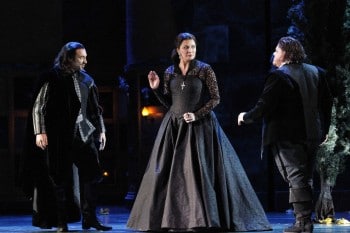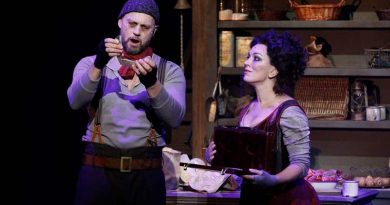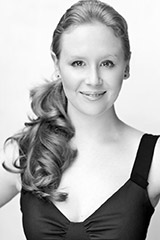Review: Don Carlos, Opera Australia
Don Carlos is Verdi’s grandest and, in many ways, greatest opera. Opera Australia’s sweeping production – first staged by director Elijah Moshinsky in 1999 – captures the tyranny and grandeur of the Spanish court.
In a vaguely Oedipus-inspired tale, the opera tells the story of our hero Don Carlos, who finds himself in love with his father’s new wife, conflicted by competing loyalties to his country, his family and his own desires.

Perhaps Verdi’s most explicitly political opera, Don Carlos is adapted from German playwright Friedrich Schiller’s Don Carlos, Infant von Spanien. Clocking in at just under four hours, this production at Opera Australia presents the four Act version, omitting the first Act which provides some context for the romance between Don Carlos and his soon-to-be stepmother Elisabeth de Valois. Although the backstory would be useful, this version allows the audience get home before 1am.
In Verdi’s conflict of political dynasty, individual struggles play out against absolute power. All five major characters are torn between personal desires and political agendas. For each of them, liberty is paramount.
Moshinsky’s production simmers with tension, pathos and grandeur. Designer Paul Brown’s stark and understated sets capture a sense of oppression and decline, and are aided by Nigel Leving’s impressive lighting design. Brown’s Velazquez-inspired costumes are works of art; absurd and magnificent in their size and stature. Elisabeth’s dress in the auto-da-fe scene is particularly spectacular.
The success of Don Carlos is largely due to some astounding performances from the principal roles. Verdi’s score demands a great deal from singers, both dramatically and vocally. Revival director Roger Press has assembled an ensemble of singers who, for the most part, meet and exceed such challenges.
The cast is led by legendary Italian bass Ferrucio Furlanetto. His richly detailed performance was an example of exquisite bel canto singing and dramatic gravitas. The opening aria at the start of Act Three, as the King sits exhausted, anguished and alone in his study, was a particular highpoint.
Baritone Jose Carbo sang with a heroic ease and made light work of the demanding tessitura of the role of Rodrigo. As the conflicted queen Elisabeth de Valois, American soprano Latonia Moore gave a standout performance, singing with power and rich evenness throughout the extreme range of the role.
As the glamorous aristocrat Princess Eboli, Serbian-born soprano Milijana Nikolic was dramatically assured, however the role sounded slightly out of her vocal range, and top notes and coloratura passages were a little strained.
As Don Carlos, Mexican tenor Diego Torre sings with unwavering power and a penetrating tenor sound, however his characterization lacked the detail and nuance required for him to be truly convincing as a charismatic leader. Daniel Sumegi is a brief but formidable presence as the Grand Inquisitor. Strong support also comes from David Parkin as the foreboding Monk, Anna Dowsley as Tebaldo and Julie Lea Goodwin is suitably celestial as the Voice from Heaven.
In the pit, conductor Andrea Licata leads the orchestra with a sensitive and precise reading of Verdi’s epic score, with a keen sense of forward momentum that helps keep the action moving across the four hours. The chorus are expertly prepared by Anthony Hunt.
Opera Australia’s Don Carlos is a true spectacle, visually, dramatically and musically. But beyond the sheer opulence of the production, thoughtfully detailed performances and some of the best singing you’ll hear all year make this well worth getting along to.




